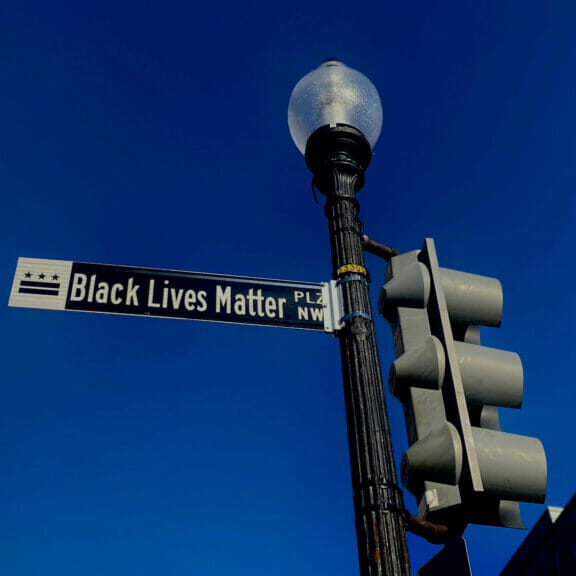
The Black Lives Matter (BLM) movement isn’t new, but some Canadians are just waking up to the message it sends. Black lives still matter. Black lives will always matter.
I’m ashamed to admit that before 2020, I didn’t know about the BLM movement. My first experience occurred following the murder of George Floyd on May 25, 2020.
As more than 140 cities across the U.S. took part in protests, a lightbulb seemed to go off around the world. Overnight, social media profile pictures went dark, local news began reporting on the BLM movement and the world was shaken awake.
Now in 2022, blacked out profile pictures are long gone, some protesters have gone home, but BLM is not over. BLM is never over. This is what I’ve come to learn.
What is BLM?
The BLM movement began in 2013. While some Canadians remember Floyd as the spark that ignited the 2020 flame, it was a young man named Trayvon Martin who inspired three Black activists to take a stand.
Opal Tometi, Patrisse Cullors and Alicia Garza began #BlackLivesMatter as a reply to the acquittal of George Zimmerman in Martin’s death.
Zimmerman was tried for the murder of Martin after shooting him in the chest. Martin was returning home to his father’s house from a convenience store in Sanford, Florida at the time. Despite Martin’s death being directly caused by Zimmerman’s decisions and actions, Zimmerman was found not guilty on all counts.
Like Floyd, the response to the injustice in Martin’s case caused a massive response, including protests, rallies and school walkouts in the U.S.
Since the inception of BLM, more than 40 chapters have sprung up around the world, including seven here in Canada.
The Canadian BLM website states their purpose is to, “Dismantle all forms of anti-black racism, liberate blackness, support black healing, affirm black existence and create freedom to love and self-determine.”
Black lives will always matter
As Canadians, some of us may believe our country is above racism and cultural injustice. But equality is nowhere near as close as some of us like to think.
Last year, the Liberal government pledged to spend $285 million over five years to tackle anti-Black racism in public service. They hope to use the money to collect data to better understand people of colour and their experiences. While I applaud the proposal to support Black public service employees, I agree with the backlash the action has received. Five years and $285 million for data to help our Black public service workers avoid racism in the workplace? Is this the only solution our government can come up with? Could that money be better spent supporting our Black communities and anti-Black racism efforts?
A 2021 report by CBC News found that only one in four Black Canadians have seen improvement in opportunities for success over the past 10 years.
Last month, CTV News released an article on the recently highlighted issue of racism in professional Canadian hockey.
Just this month, as our medical professionals battle to support Canadians during the COVID-19 pandemic, CBC reported that 88 per cent of Black nurses face discrimination in the work place.
We need to do better.
What can non-Black supporters do?
I’m white. I think it’s important as I write this article to express this. I don’t understand what it is to be a Black Canadian. I have Black friends, some I consider family, but that doesn’t give me the experience or identity to understand what it is to be Black. So, what can we do as non-Black friends, family members, colleagues and community members to support the BLM movement?
We can move over, lift up, provide a platform and offer our Black communities the megaphone they need to be heard.
Somebody told me recently that Black History Month isn’t a month for non-Black people to advertise Black celebrities and praise Black successes. It’s a time to help our Black communities up on stage to say what needs to be heard, to see them and to listen.
I think this is one of the reasons BLM is so important; they provide this platform, and the world is finally listening.
I hope one day we don’t need organizations to tell us that Black lives matter. The fact we do right now means we have work to do.






